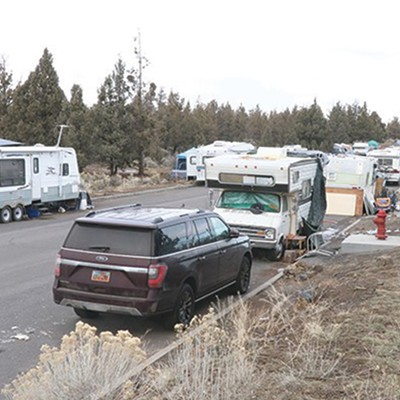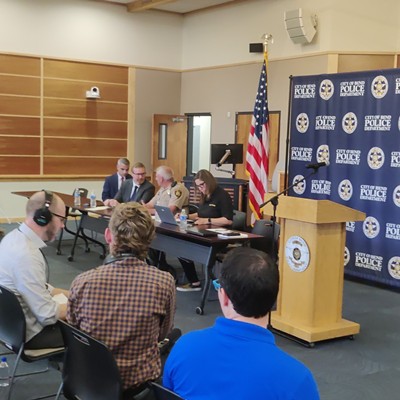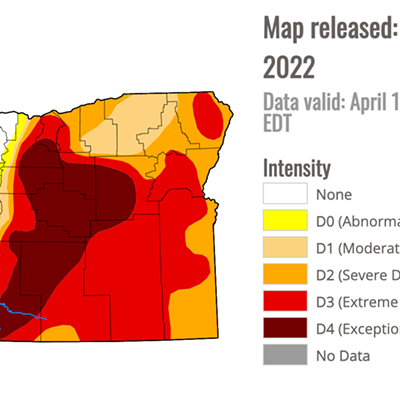According to the latest "Global Report on Trafficking in Persons" by the United Nations Office on Drugs and Crime (UNODC), compiled in 2014, human trafficking is pervasive worldwide, including the United States. Seventy percent of victims are female and one third of all trafficked persons are children. Human trafficking's most common form is sexual exploitation, followed by forced labor.
"The exploitation of one human being by another is the basest crime," says UNODC Executive Director Yury Fedotov. This is one of the oldest trades known to mankind, and as barbaric as its roots are, the practice is still one that is all too common place today, with a reach that extends to Oregon.
The report is thorough, reporting victims from 152 countries found in 124 of 128 participating countries, divided by region. However, Fedotov warns that with few or no recorded convictions in 40 percent of the countries where human trafficking is present, the report fails to represent the full scope of the crisis.
"It should be kept in mind that official data reported to UNODC by national authorities represents only what has been detected. It is clear that the reported numbers are only the tip of the iceberg," he says.
This U.N. report is an awakening to the scale of human exploitation globally, but most may not realize the problem is present locally.
The Department of State's 2015 "Trafficking in Persons Report" names sex trafficking, child sex trafficking, forced labor, forced child labor, domestic servitude and child soldiers among types of human trafficking. The report focuses on ending human trafficking globally by cutting off the global chain of demand. Secretary of State John Kerry writes of victims across the globe, saying, "We hear you." In February, the U.S. prepared to enforce its ban (found within the Tariff Act of 1930) on importing goods made by child laborers and slaves under new provisions of a law signed by President Obama.
"This law slams shut an unconscionable and archaic loophole that forced America to accept products made by children or slave labor," said Oregon's Sen. Ron Wyden, who worked on the legislation.
Awareness about human trafficking and modern slavery in the U.S. is increasing rapidly. Jesse Fishkin, 16, is a student at Summit High School and a Boy Scout who first learned about the issue when author Nita Belles came to speak to his class. "To me, human trafficking is nothing more than modern slavery, the practice of buying and selling human beings," Fishkin said about what he had learned. Alongside the Soroptimists, an international group that focuses on improving the lives of girls and women, Boy Scout Troop #25 created life-sized silhouettes made to represent shadows of the victims of human trafficking. In October, the group placed the two-dimensional figures around Bend.
Belles is the Central Oregon Regional Director for Oregonians Against Trafficking Humans (OATH), and has dedicated much of the past decade to the anti-trafficking movement. She is the author of "In Our Backyard," a book about her experiences uncovering human trafficking in the United States. "This is happening not only in big cities, but in Central Oregon, in small towns such as Prineville, Madras, Sunriver, Bend, Redmond, Black Butte and many others," she says. She speaks to community groups in Central Oregon and has worked with Oregon Sen. Tim Knopp (R-Bend), who introduced legislation to create greater penalties for human trafficking in Oregon.
The UNODC data makes it clear that the Americas (North America, South America and Central America) are destinations for global human trafficking from Asia, Europe and Africa. Nonprofit organizations and Oregon's politicians are not shying away from the human trafficking issue. Congress made forced labor a federal crime in 2000, and Oregon adopted a law against labor trafficking in 2007. However, years go by without recorded convictions.
That may soon change, although the wheels turn slowly. In early April of this year, Oregon Bureau of Labor and Industries (BOLI) Labor Commissioner Brad Avakian filed charges against the adult night club, Stars Cabaret for unlawful sexual harassment of minors. Stars is an adult entertainment club with four locations in Bridgeport, Salem, Beaverton and Bend. The lawsuit involves six months of investigation that found evidence of compelling prostitution on a 13-year-old minor in 2014. This case is ongoing.
Awareness starts now. For those who would like to learn more about human trafficking in Central Oregon, and what to do about it, Belles will speak at the Bend United Methodist Church on May 19, from 6:30 to 8 p.m.
"In Our Backyard" a lecture by author Nita Belles
Bend United Methodist Church, 680 NW Bond St., Bend
May 19, 6:30 to 8 p.m.
RSVP: [email protected]
Human trafficking resources:
The Soroptimists International of Bend: www.sibend.org
National Human Trafficking Resource Center: 1-888-373-7888
Oregonians Against Human Trafficking: www.oregonoath.org

























